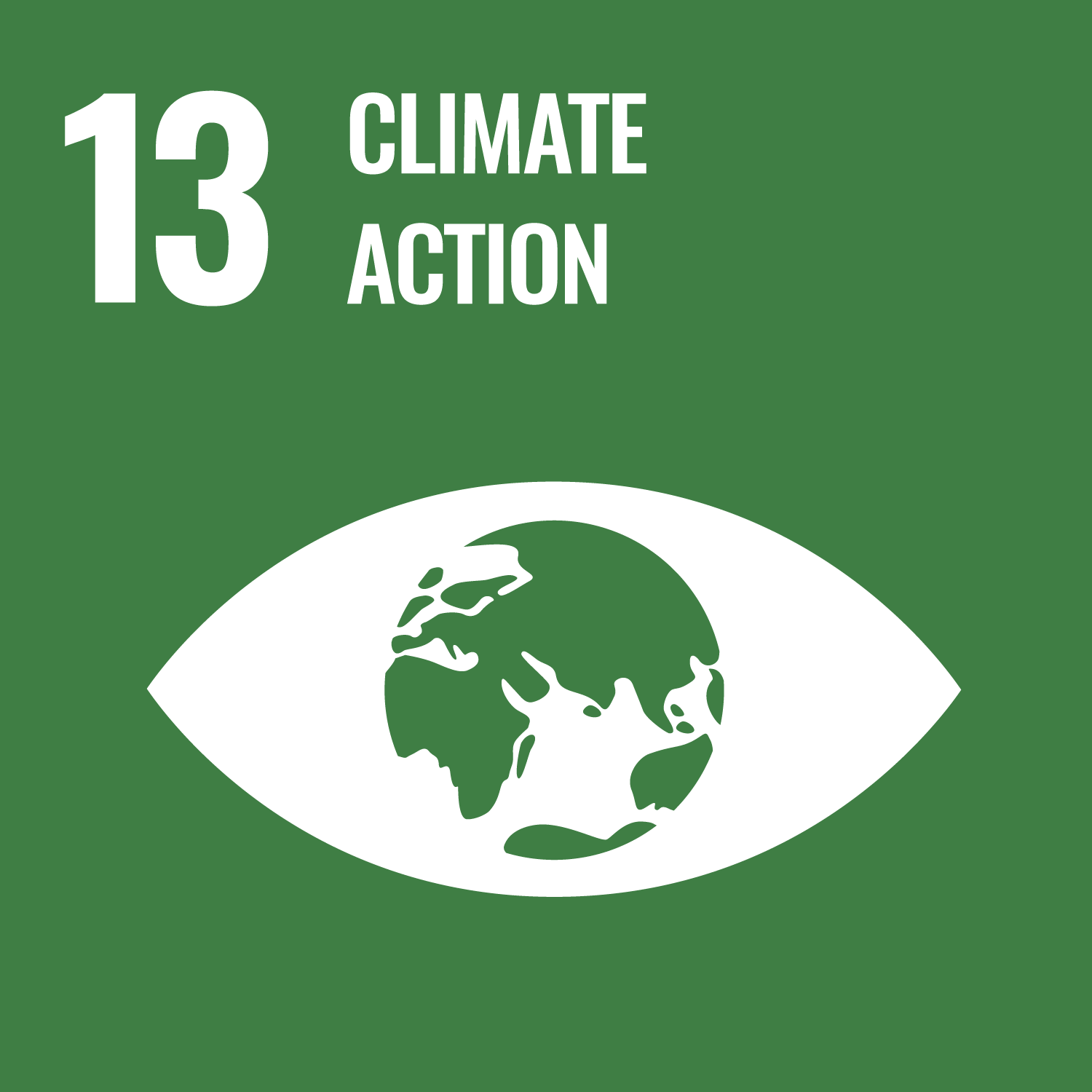目標13:氣候行動

LOW-CARBON ENERGY TRACKING
Although the main campus is limited in area, the university is still committed to installing solar power generation on the roofs of buildings as well as to the long-term tracking and calculation of low-carbon energy use at the university. Total energy consumption in 2020 was 425,140 KWH/69,930.504 GJ. Total energy from low-carbon sources (solar power) in 2020 was 60,706 KWH .
CLIMATE ACTION PLAN AND PROGRAM
Taipei Tech offers 14 courses related to the issue of climate change in the departments of Civil Engineering, Architecture, Energy and Refrigerating Air-Conditioning Engineering, etc. Courses include such titles as Adapting to Climate Change Impacts, Low-carbon Energy and Society, and Environmental Ecology. A 5-class Ecology and Environmental Protection course will soon be offered in the general education field, and two lectures are presently scheduled: Climate Generation Action Guide and the NTU Climate Action Society’s Guide to Sustainable Practice on Campus. Both discuss global warming and other climate change issues.
In June 2020, Taipei Tech held a professional training program titled Climate Change Regional Adaptation Facility Planning and Design Training Course that was designed to elevate public awareness of climate change issues. A total of 57 participants joined the program. Taipei Tech and the Ministry of Economic Affairs jointly organized the 2020 Regional Energy Resource Recycling Technology Seminar. The New Generation Sumitomo and Industrial Energy Conservation Research Center participated in the 2020 International Conference on Mechatronic, Automobile, and Environmental Engineering alongside several other domestic universities. The event discussed climate change issues, technological developments in resource integration, and improving the level of innovative technology. Taipei Tech also held an energy conservation and carbon reduction talent cultivation competition in colleges and universities that focused on such topics as healthy sports and clean energy and offshore wind turbine braced structure collision analysis. The school also set up an interdisciplinary course in offshore wind power technology to promote the development of green energy and develop local technologies.
Taipei Tech is committed to cooperating with local governments on climate action projects. From 2018 to 2020, 25 projects, such as and offshore wind power survey, were implemented. From 2020 to 2023, we plan to set up the Energy Technology Research Institute, which will function as a center for the research and development of offshore wind power, green energy materials technology, and intelligent energy-saving technologies. The direction of research will largely be determined by a mix of government energy policies and international cooperative research efforts.
We work in conjunction with nine major domestic technician associations and the Taiwan Research Institute to promote the localization offshore wind power engineering technology. After signing an MOU with the European Chamber of Commerce Taiwan (ECCT) and becoming a member of the Low Carbon Initiative (LCI), Taipei Tech participated in the 2020 Global Offshore Wind Summit Taiwan (GOWST). Taipei University of Technology and Taiwan Shixi Engineering Consulting Company signed an MOU in 2021 to undertake projects and talent cultivation programs related to sustainable energy and smart buildings. Taipei Tech has established research centers that provide local education programs and campaigns on climate change risks in conjunction with NGOs, such as the Water Environment Research Center’s provision of training to increase public knowledge of water resources protection.
Furthermore, the Water Environment Research Center and Disaster Prevention Engineering Technology Center both work with the government to conduct research on impacts of climate change and natural disasters, and discuss Taiwan’s response capabilities and mitigation measures for natural disasters. For example, in 2020, a Taipei Tech research team continued its cooperation with the Environmental Protection Administration on a regional climate change adaptation facility project, and another team assessed the feasibility of a bridge improvement project with Freeway Bureau, MOTC.
The Disaster Prevention Engineering Technology Center has long supported the government during local climate disasters, and is dedicated to developing early warning and monitoring systems for disasters. In 2020, the Disaster Prevention Engineering Technology Center built a flood warning platform, a smart disaster prevention platform, and a smart flood prevention network. The Water Environment Research Center conducted research on flooding hot spots, flood forecast analysis technology, and permeable pavement monitoring, with the goal of developing smart flood prevention technology.
CARBON NEUTRALITY
One school policy outlines a commitment to carbon neutrality. The teachers and students at the school have given full play to their professional abilities to develop a variety of methods to implement carbon neutrality. Moreover, the university has a set deadline and plans to achieve carbon neutrality for scope 1 and 2 (indirect emissions from purchased energy) by 2048. Furthermore, the university is in line to achieve the carbon neutral goal for scope 1 and 2 before 2048.





 10608 台北市忠孝東路三段1號
10608 台北市忠孝東路三段1號 Tel:886-2-2771-2171#1021
Tel:886-2-2771-2171#1021